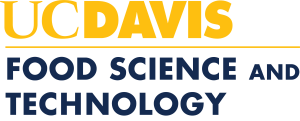(3 units) SPRING QUARTER
COURSE GOALS: To develop an understanding of the major principles of and current issues in the several topical areas that collectively constitute Food Microbiology.
PREREQUISITES: This is a graduate level survey course in Food Microbiology which builds on undergraduate coursework in Biology, Microbiology (or Food Microbiology) and Biochemistry. Specific prerequisites in terms of courses offered at UC Davis are Biological Sciences 1C, Microbiology 102 or Food Science 104, and Biological Science 103.
COURSE FORMAT: Three hours of lecture per week. Grades will be based on two midterms (30% each) and a final (40%).
TOPICAL OUTLINE:
- TOPICS IN FOOD-BORNE DISEASE
Pathogenesis: Virulence mechanisms of food-borne pathogens; toxin structure/function (with emphasis on enterotoxins); classical approaches for control of food-borne pathogens New directions in pathogen detection Introduction to the epidemiology of food-borne disease - TOPICS IN MICROBIAL GROWTH AND FOOD SPOILAGE
Temperature effects on microbial growth and survival; thermal destruction, cell injury Effect of atmosphere on microbial growth Acidity and water activity as growth/survival parameters New and controversial methods of food preservation Physiology of microbial food spoilage, wit emphasis on fungi - TOPICS IN FOOD FERMENTATIONS
Physiology of dairy and vegetable fermentations Genetic engineering for food fermentations Introduction to wine microbiology Introduction to beer microbiology Bread and baker's yeast
